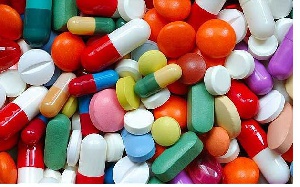To effectively address the problem of counterfeit pharmaceutical products on the market, it has become imperative for more public, private sector collaborations to explore the opportunities of technology, a pharmaceutical expert has said.
Mr. Bright Simons, President of mPedigree Network, at a roundtable discussion on health said this is critical to building capacities.
Due to the country’s poor monitoring capabilities, it registers a high incidence of waste, fraud, corruption, diversion of resources and accounting irregularities.
Estimates show that about US$ 500 million is wasted in the health sector per annum, due to some irregularities.
Simons opined that, much as partnership with government is very key in Ghana, the ability to get government and public sector agencies to participate in a large scale initiative that utilizes technology to address problems is almost impossible.
He was quick to note that “these public sector agencies may help in pilots, but to try and scale up to integrate into their systems is very difficult.”
The full deployment of technology, in this area, is more efficient and effective in controlling the manner in which substandard or counterfeit medicines get into the country.
Such poor-quality medicines present a serious public health problem, particularly in emerging economies and developing countries, and may have a significant impact on the national clinical and economic burden.
In recent years, Ghana spends about US$ 1.2 billion on average in the health sector, which is highest in percentage of GDP terms, when compared to all other countries in West Africa.
Counterfeit and substandard medicines lead to huge losses as resources are spent on substandard medicines, which constitute as much as 48 percent of total operational budget of key agencies including the national health insurance scheme (NHIS).
Estimates are that counterfeit and other forms of fraud, when properly accounted for, will exceed half of Ghana’s health spending.
Substandard medicines usage is widespread and represent a threat to healthcare because they can inadvertently lead to healthcare failures, including antibiotic resistance and the spread of diseases within a community, as well as death.
Simons emphasised that “what are required are innovations in efficiencies, accountability, anti-counterfeiting, anti-fraud and anti-corruption.”
The use of innovative traceability systems, he said, will enhance the fight against counterfeit medicines.
“Technologies present the opportunities to addressing many of these issues; nonetheless, it would require all stakeholders working in harmony for the use of such technologies, to ensure success,” Simmons said.
Health News of Saturday, 25 August 2018
Source: goldstreetbusiness.com

















